How can I stop Herons eating my pond fish?
Estimated reading time 6 minutes
Herons — Fascinating, Frustrating, and (Mostly) Unstoppable #
Even if ponds aren’t your thing, herons are birds worth knowing about. They’re majestic, clever, and — as many pond keepers will tell you — occasionally infuriating! When we ran our children’s treasure hunt at the shop this year, I learned a few new facts about these incredible creatures, so I thought I’d share them here, as well as giving you some tips on keeping your prized pond fish safe. Even as I write this article, a heron appeared flying above my garden, as if to say “Don’t you dare tell everyone my secrets!”
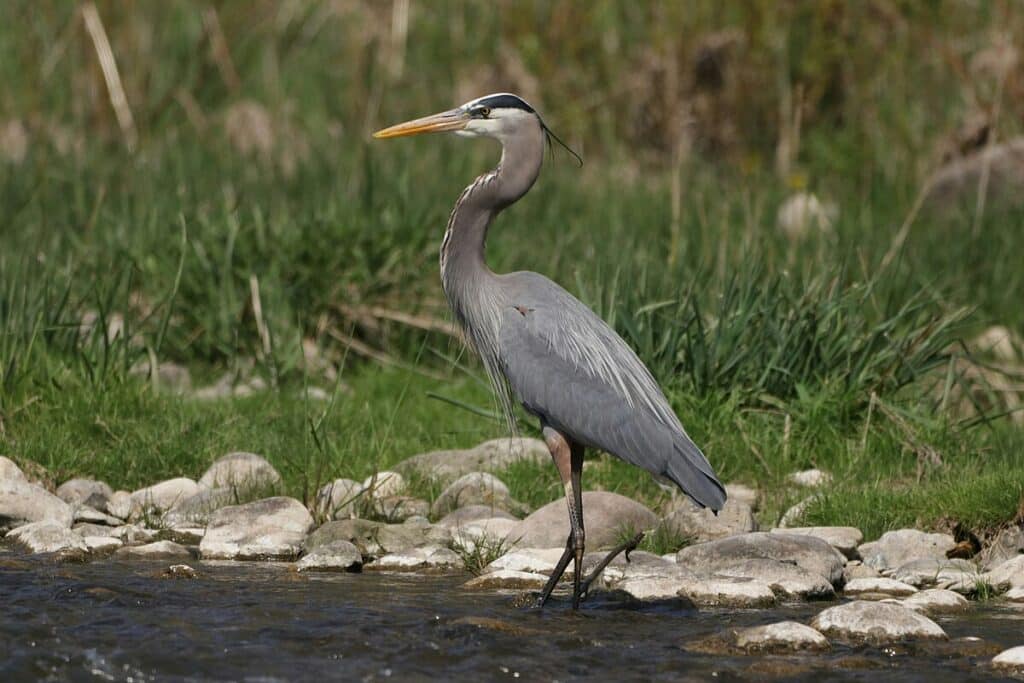
“I ran up the garden at one once, as I got closer, it was getting bigger and bigger, and it wasn’t taking off. I started to think what how to act when I got there, the thought entered my head, I’m not going to tackle this monster, should I just point out the tastiest fish? Luckily, it did fly away…I stood there triumphant in my Evil Knievel dressing gown…dignity intact! “
A Few Things You Might Not Know About Herons #
- They used to be on the menu!
In medieval times, roast heron was a delicacy served at banquets. Thankfully, times have changed — herons are now a protected species, which means it is an offence to harm one. - They’re lightweight gliders.
Despite a wingspan of around 1.8 metres, a heron weighs only about 2 kilograms. But, they can consume 25-50% of their body weight in fish each day. When you see one up close, they look almost prehistoric — tall, elegant, and incredibly light for their size. - Their eyesight puts ours to shame.
A heron’s vision is roughly three times more detailed than ours. Once they spot a potential fishing spot, they’ll perch somewhere high — a fence, roof, or tree — to study the water before making a move. - They’re low-light specialists.
Most of their fishing happens at dawn and dusk, when the light is low and the fish are more active near the surface. - They’re solitary hunters.
You’ll rarely see two herons fishing together. They prefer to operate alone — but they’ll tolerate each other in rich feeding grounds like the River Dart, where I’ve seen several sharing space (begrudgingly). - They don’t always follow the rules.
Herons are supposed to rest at night… except when they don’t! I’ve watched CCTV footage of one bird fishing through the small hours like a night-shift worker on a mission. - They’re cautious about water depth.
Herons don’t dive or land directly in the water. They prefer to wade in carefully, avoiding any unknown depths. - They don’t secrete oil to calm fish — that’s a myth!
Fishermen once believed that herons produced an oil that soothed fish, so they’d rub “heron fat” on their lines to improve their luck. In truth, the oily residue sometimes seen after a heron visit is just from their feathers, not from any special trick. - They spook easily.
Herons are alert birds — sudden noises or movement will send them flying. That’s one of their few real weaknesses. - They never give up.
Once a heron finds a reliable food source, it will keep coming back until every last fish is gone. Persistence is their defining trait. - They’re greedy (and a bit clumsy).
Sometimes a heron will spear a fish far too big to carry — I’ve seen them struggle to lift off, fish dangling, before giving up and dropping their prize. ” I have seen sizeable Koi carp with a hole in their side, meters and meters from the pond, wondering how on earth it got there”
How to Stop Herons Without Harming Them #
So, how do you stop these relentless, fish-loving machines from turning your pond into a buffet?
By Jove — there is hope! It’s all about exploiting their weaknesses, while remembering: they’re not daft!
Below are the most reliable deterrents, from the simple to the high-tech.
1. Plastic Heron Decoys #
They can work, but only for a short while. Herons are smart enough to notice if your decoy hasn’t moved. Shift it every couple of days, and it might just fool them into thinking your pond is already “claimed.”
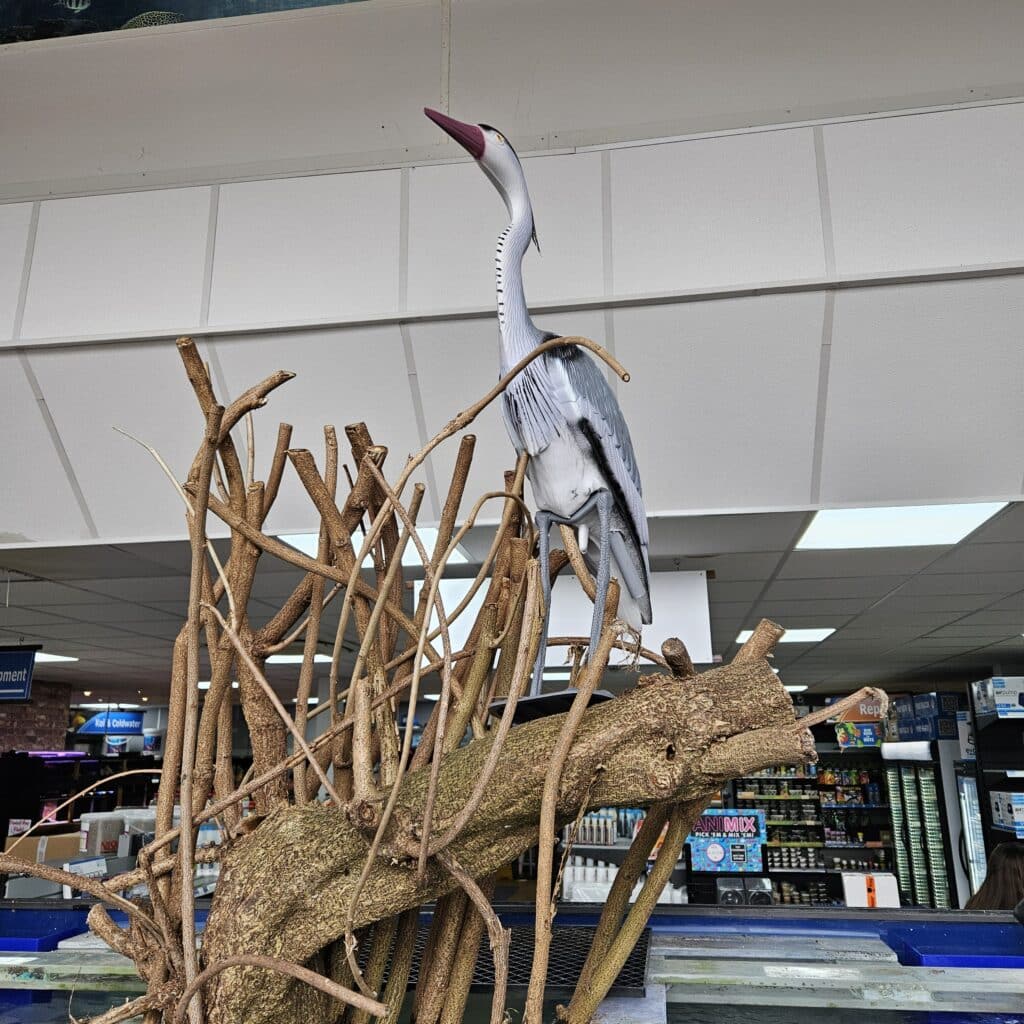
2. Netting the Pond #
A physical barrier is one of the best defences.
Just make sure your netting sits above the surface — not resting on it — because herons have been known to fish straight through a net that’s touching the water. The biggest issue with nets, is that they tend to look a bit ugly, plus other animals can tear holes in them.
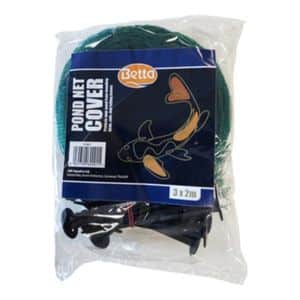
3. Fencing and Perimeter Barriers #
Herons don’t like stepping over things into water.
- Even a low fence or trellis around the pond can be enough to make them think twice.
- For smaller ponds, you can make a simple “trip line” system using stakes, fishing line, and small bells. When a heron tries to step in, the bells ring and scare it off.
- For larger setups, an electric pond fence is incredibly effective — it just startles the Heron, but they certainly think twice before coming back. Just remember to turn it off when you’re by the pond! I’ve been “stung” a few times now (including once on my forehead…don’t ask!), you’d think It would have sunken in by now!
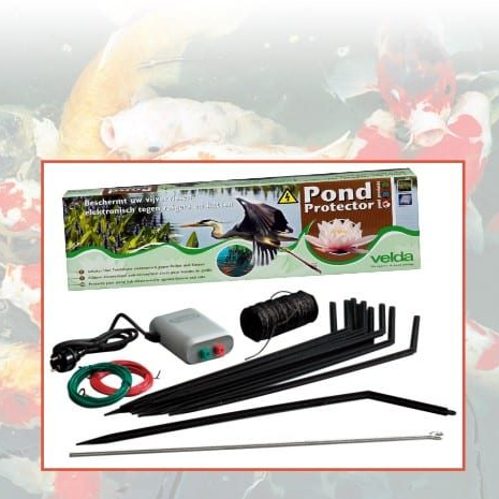
4. Noise and Motion #
Motion-activated deterrents are getting better all the time. Some use infrared sensors to trigger noises like barking dogs or alarm sounds when movement is detected. They work incredibly well, they are completely portable so you can move it to different areas of the pond and they are quick to install. The down side is they can be quite expensive.
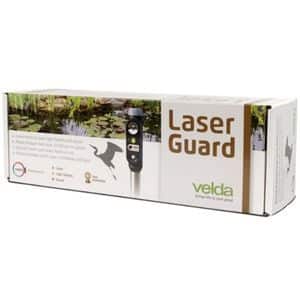
Or you can make your own rustic deterrent — a bamboo heron scarer powered by flowing water. The clunking sound it makes at random intervals is enough to startle most birds into flight.
5. Floating Net Circles #
These semi-rigid plastic rings clip together to form a floating barrier around your pond’s edge. They work brilliantly because they provide a physical deterrent without covering the pond entirely. When a heron tries to stand on them, they sink slightly, giving the bird a scare. They work for most shapes of pond and are modular. They are a reasonable price, plus you can cut some holes through them for your plants to grow through, without losing their integrity, unlike pond cover nets
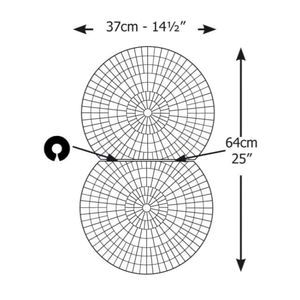
6. Consider Pond Design #
If you’re still in the building or redesign stage, you can outsmart herons from day one.
- Sheer sides or raised edges make wading impossible.
- A deep waterline below the top edge of your pond makes it hard for a heron to lean in.
- A handrail or coping stones around the perimeter can act as both decoration and a deterrent.
“Picture yourself standing on a table and trying to reach something on an adjacent chair without bending your knees, thats the scenario you want every heron visiting your pond to be faced with!”
It’s a small detail most people don’t think about — until they’ve spent precious time and money building their perfect pool paradise but have accidentally built a perfect heron buffet!
7. The Power of Water #
One of the most satisfying deterrents is an infrared water sprayer — a sensor that connects to your hosepipe. When movement is detected, it fires a short, surprising jet of water.
They work well (and are quite funny to watch), but there are caveats:
- You will get soaked at least once when you forget it’s armed.
- They’re not practical for very large ponds.
- They don’t work in winter if your hose is frozen solid!
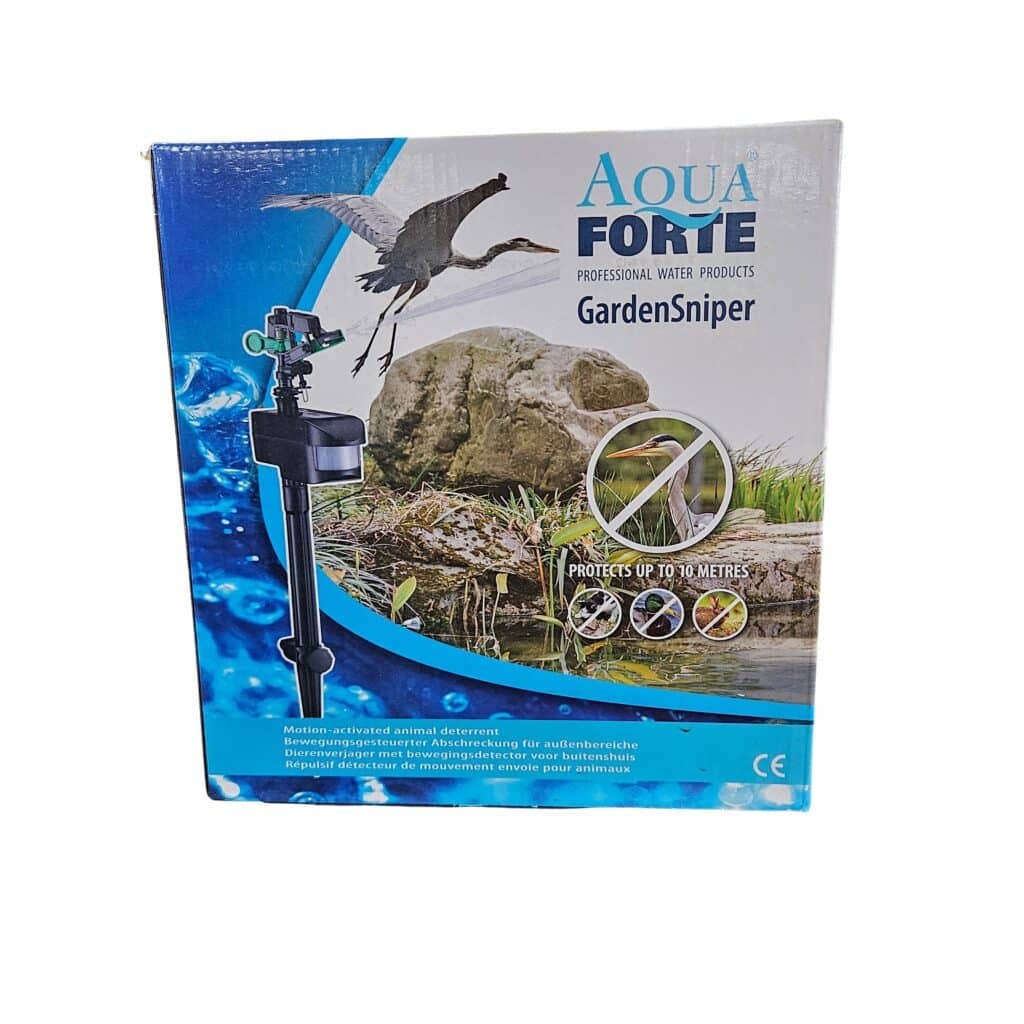
Final Thoughts #
I guess, like many aspects of our lives, there is no one-size-fits-all perfect solution. For me, the brief was that, the heron solution must not interfear with the aesthetics of the pond and enhance them if possible. So I built a trelace border with a handrail on top. This actually adds to the look of my small pond as well as stopping our little Boston Terrier “Belle” from falling in again. I enjoy experimenting with wood and creating solutions from cast-offs, but that may not be for you. You may just want a simple, off-the-shelf solution. My Dad moved into his new house, which had an established pond, the previous owner said
“It’s reached a natural balance, the goldfish in there are breeding faster than the heron can take them so I just let nature do its thing.”
The first thing my Dad did, was to net the pond. A quick simple, effective solution. Having dealt with the mysery herons cause all of his life, the “natural solution” didn’t sit well with him at all
Herons are extraordinary birds — elegant, efficient, and incredibly smart — but to pond keepers, they’re often more foe than friend.
The trick is to stay one step ahead. Mix up your deterrents, tweak your setup, and remember: persistence pays off, both for them and for you.
I do hope you found this useful
All the best
Richard Cook
If you’d like to explore the different products mentioned above — from nets and fences to water sprayers and floating rings — we’ve got a full range in-store and online at:
Shirley Aquatics (1984) Ltd
📍 Becketts Farm, Alcester Road, Wythall, Bromsgrove, Worcestershire, B47 6AJ
📞 0121 744 1300
📧 sh**@****************co.uk






